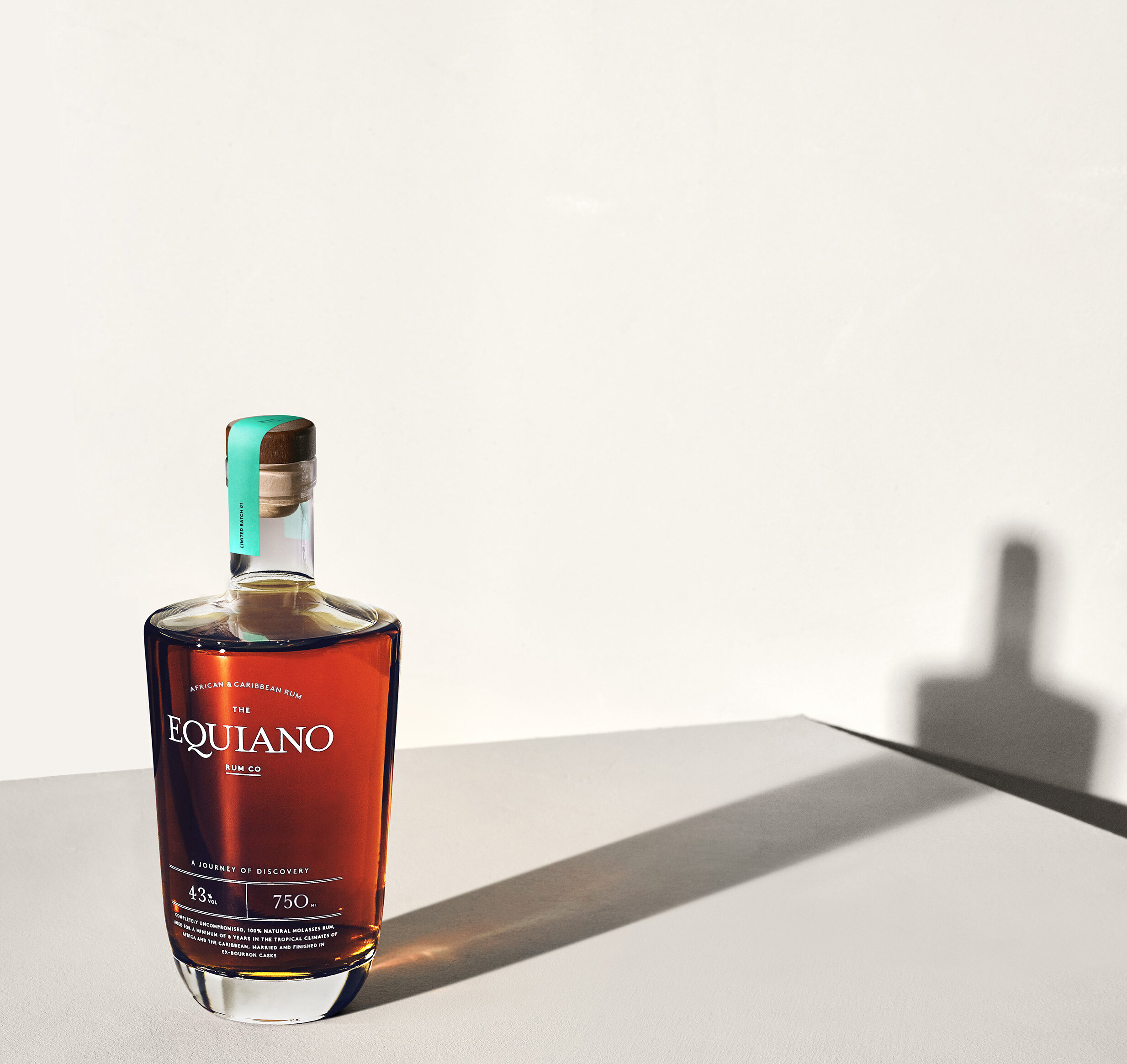Tony's (Mostly) Whisky Corner: Equiano Rum
This rum retraces the journey of a history-making abolitionist
There are plenty of brand ambassadors out there doing their thing, but Ian Burrell may be the only global ambassador for an entire category. His title of Global Rum Ambassador wasn’t bestowed lightly—he’s visited all seven continents, including Antarctica, to educate, spread the gospel of quality rum, and down a drink with countless admirers and acolytes. So when Burrell decided to create his first rum brand, it was bound to be something special. But it turned out to be a history lesson of sorts as well.
Equiano Rum (43% ABV, $60) is a collaboration between Burrell and Richard Seale, the owner, master distiller and blender at Foursquare in Barbados, one of the most acclaimed rum distilleries in the world. “I always wanted to make a rum from Africa,” Burrell says, “but the Caribbean is making the best rums in the world at the moment, so the light bulb moment was when the team was brainstorming and we mentioned the ‘African-Caribbean’ blend.” Equiano is the first ever such blend. The African component comes from the Grays distillery in Mauritus, one of the few African nations making rum. “Mauritian rum is naturally sweet and smooth,” Burrell notes, “because of the terroir and the many fruits that grow on the island. There is also the French influence on the island's rum production methods.” The 10 year old column-distilled rum was aged in French Limousin oak and ex-cognac oak casks before being brought to Barbados, where Seale blended with his own 8 year old Foursquare rum, distilled in both column and pot stills and aged in ex-bourbon barrels. No sugar was added after distillation, and the finished product contains no additives of any sort.
The rum’s journey from Africa to the Caribbean (and then to the U.S. and U.K., where it’s being sold) mirrors that of Olaudah Equiano, the famed 18th century abolitionist for whom Equiano is named. Born in Africa, he was captured, enslaved and brought to Barbados as a child, before being transported to the American colonies. He was able to buy his freedom—supposedly some of the money came from selling rum—and moved to England, Burrell’s home country, where his autobiography and anti-slavery tracts made him a best-selling author. Equiano, the brand, is walking the walk by donating 5% of all its corporate profits to selected freedom and equality projects through the Equiano Foundation, as well as donating $2 from each bottle sold through their website.
But is Equiano more than just a charity case? Is it a rum worth drinking? I don’t think Richard Seale could make a lousy rum if he tried, especially with Ian Burrell signing off on it. The Mauritian influence comes through first, with sweet vanilla playing off fruity cognac and light oak. As it hits the back of the tongue, the Bajan profile becomes more pronounced, with brown sugar, orange peel, and more pronounced oaky notes taking over. At 43% ABV, some hardcore Foursquare fans might think Equiano could use a little more “oomph,” and it is indeed a tad on the light side. But it’s also flavorful and complex and supremely sippable—no water or rocks necessary. And it’s great liquid accompaniment for doing a deep dive into the life of Olaudah Equiano. You can check out his autobiography here., ideally with a glass of his namesake rum within reach.

